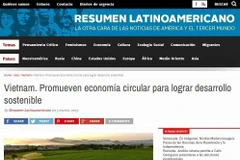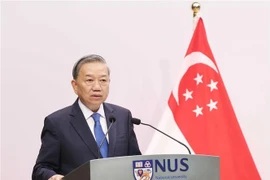The financial institution said in a statement that Thailand, a 544 billion USD economybefore the pandemic hit, needs an innovation-led growth model. It added thatthe Kingdom needs to address existing foreign investment constraints in orderto create better jobs and become a high-income nation.
The bank said adopting a circular economy, which involves producing, leasing,repairing, upgrading and recycling as much as possible, could generate as muchas 1.6 billion USD of cost savings and additional revenue for the privatesector, especially for agriculture, construction and electronics.
It added that an additional 1.8 billion USD a year could meanwhile be generatedfrom accelerating use of digital technology, mostly from new investments andexpansion of sectors where Thailand is well-positioned, such as e-commerce andfintech.
Finance Minister Arkhom Termpittayapaisith said, "With COVID-19, digitaland disruptive technologies have been key in keeping businesses afloat."
The tourism- and consumption-led economy, Southeast Asia’s second biggest afterIndonesia, grew 1.6 percent in 2021, with the government predicting growth of3.5-4.5 percent this year.
The World Bank added that strengthening structuralreforms will boost businesses and promote investments in digital innovation andcircular technology./.






























